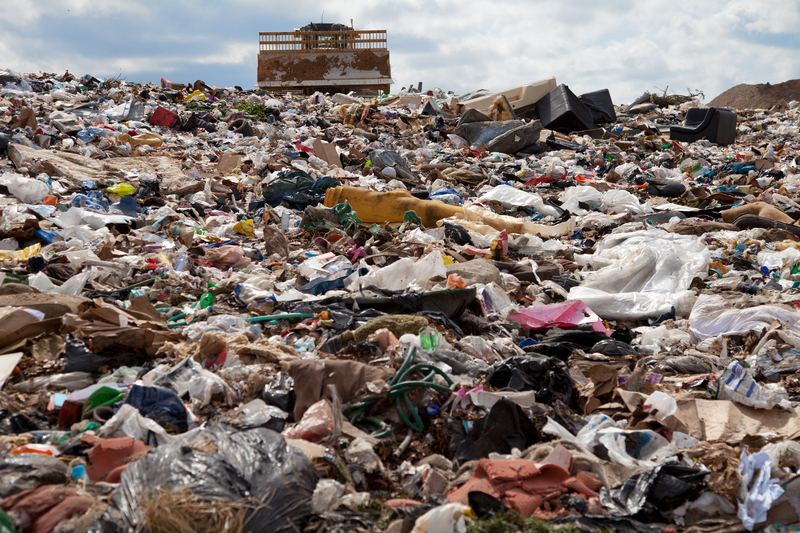Effective Approaches to Reduce Household Waste
Household waste management is a pressing concern in today's world, where sustainability and environmental protection have become central themes. Reducing household waste is crucial not only for minimizing landfill contributions but also for protecting natural resources and promoting eco-friendly living. In this comprehensive guide, we'll explore various effective strategies to reduce household waste, providing practical tips and actionable steps for transforming your home into a more sustainable space.
Understanding Household Waste
Before diving into methods to reduce waste at home, it is important to understand what makes up typical household waste. This category commonly includes food scraps, packaging materials, plastics, papers, electronics, and cleaning products. By recognizing your waste output, you can tailor your efforts to make the most significant impact.
Main Sources of Home Waste
- Food Waste: Expired or unused food items.
- Packaging Waste: Plastic wrappers, glass bottles, and cardboard boxes.
- Electronics & Batteries: Outdated devices and used batteries.
- Chemicals: Cleaning agents, paints, and other hazardous substances.
- Single-use Products: Paper towels, disposable plates and cutlery.

The Importance of Reducing Household Waste
Why focus on minimizing waste in our homes? Here are some compelling reasons:
- Environmental Protection: Less waste means reduced pollution and greenhouse gas emissions.
- Resource Conservation: Conserves water, energy, and raw materials.
- Financial Savings: Buying less and reusing leads to more money saved.
- Healthier Lifestyle: Reducing waste often encourages healthier living by promoting fresh foods over processed items and chemical-laden products.
Practical Strategies for Reducing Household Waste
Let's explore the most effective approaches to minimize waste at home. Each method is easy to implement and fosters long-lasting change.
1. Adopt the 5 R's: Refuse, Reduce, Reuse, Recycle, Rot
The 5 R's framework provides a simple blueprint for household waste reduction:
- Refuse what you do not need.
- Reduce what you do need.
- Reuse by using items multiple times.
- Recycle what you cannot refuse, reduce, or reuse.
- Rot by composting organic materials.
By consciously following these steps, you dramatically decrease your waste output.
2. Minimize Food Waste
*Food waste* makes up a significant proportion of household waste. Here's how you can cut down:
- Plan meals in advance to buy only what you need.
- Understand food labeling - "best before" versus "use by"
- Store food properly to extend freshness.
- Compost kitchen scraps (fruit peels, egg shells) at home.
- Repurpose leftovers into new meals.
3. Choose Eco-Friendly Packaging
- Buy in bulk to reduce packaging.
- Choose products in recyclable or biodegradable containers.
- Say no to single-use plastics whenever possible.
- Bring your own bags and containers for shopping.
Reducing packaging waste is one of the most impactful ways to cut down on household trash.
4. Embrace Reusable Products
- Switch to reusable shopping bags and produce sacks.
- Use glass jars or stainless steel containers for food storage.
- Utilize cloth napkins and towels over paper alternatives.
- Invest in a quality water bottle and coffee cup.
Substituting disposable items for durable, reusable alternatives can sharply reduce your household's waste footprint.
5. Smart Recycling Techniques
While recycling is critical, it is most effective when done properly:
- Thoroughly clean containers before placing them in the recycling bin.
- Familiarize yourself with your local recycling guidelines.
- Don't contaminate recycling bins with non-recyclable materials.
- Recycle electronics through specialized e-waste programs.
*Maximizing recycling* helps ensure that more materials are truly repurposed rather than ending up in landfills.
6. Composting Organic Waste
Composting is a natural process that transforms organic waste into valuable fertilizer. Here's how homeowners can start:
- Set up a compost bin in your backyard or use an indoor composting system.
- Add food scraps such as vegetable peels, coffee grounds, and eggshells.
- Include yard waste like leaves and grass clippings.
- Avoid adding meats or dairy, as they attract pests.
*Home composting* not only reduces landfill waste but also enriches your garden soil.
7. Upcycling and DIY Projects
- Transform glass jars into storage containers or candle holders.
- Repurpose old clothes into cleaning cloths or craft materials.
- Create planters from plastic bottles and cans.
- Explore online DIY tutorials for more upcycling ideas.
By upcycling household items, you extend their life and reduce the need for new purchases.
8. Donate, Share, or Swap
- Donate clothing, furniture, and electronics in good condition.
- Host a neighborhood swap event for books, toys, or kitchenware.
- Use social media groups to give away household items you no longer need.
*Sharing unwanted items with others* is a sustainable way to clear your home of clutter without filling up the trash bin.
9. Buy Less, Choose Wisely
A critical element in reducing household waste is mindful consumption:
- Consider whether you genuinely need an item before buying.
- Buy higher quality, longer-lasting products.
- Support companies with sustainable packaging and production methods.
*Reducing demand* for disposable and low-quality goods is an often-overlooked yet highly effective strategy.
10. Educate and Involve the Family
- Get everyone involved in waste separation and recycling.
- Set up a reward system for eco-friendly behaviors.
- Share knowledge about environmental issues with children in creative ways.
A family approach ensures sustainable household waste management for the long-term.
Technological Solutions for Reducing Home Waste
In the digital age, technology offers innovative solutions to reduce household waste:
- Smart kitchen appliances that help track food inventory and reduce food spoilage.
- Mobile apps for meal planning and shopping lists to avoid overbuying.
- Online communities for upcycling and waste reduction inspiration.
- Subscription services that use minimal or reusable packaging.
Leverage these technological tools to enhance your waste reduction efforts at home.
Common Barriers and How to Overcome Them
Transitioning to a low-waste household can bring challenges. Here's how to address typical obstacles:
- Time constraints: Start with small, manageable changes such as using reusable bags or composting kitchen scraps.
- Lack of facilities: Seek out city recycling centers or partner with neighbors to set up composting bins.
- Limited information: Research local guidelines and join workshops or online groups about sustainable living.
*Persistence and creativity* are key to breaking old habits and establishing new, sustainable routines.

Environmental Impact of Reducing Household Waste
The cumulative effect of reducing home waste is powerful. Here's what you help accomplish:
- Lower carbon emissions from reduced landfill trash and transport needs.
- Conserved natural resources by lowering manufacturing demand.
- Cleaner communities with less litter and plastic pollution.
- Better wildlife habitats through less environmental disruption.
Each step towards minimizing household waste contributes positively to environmental preservation.
Conclusion: Build a Low-Waste Lifestyle
Reducing household waste is a journey, not a destination. By embracing a variety of effective approaches to decrease waste at home, you not only help the planet but also foster a healthier, more economical, and mindful lifestyle for your family. Remember, even small changes matter. Start with one or two strategies and expand your efforts as you become more comfortable.
Together, we can make a significant difference by making smarter choices every day. Transform your home into a model of sustainability and inspire your community to follow in your footsteps. The future begins at home--and every action counts.